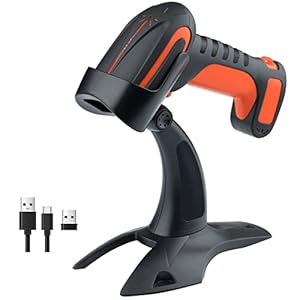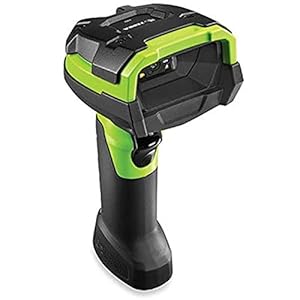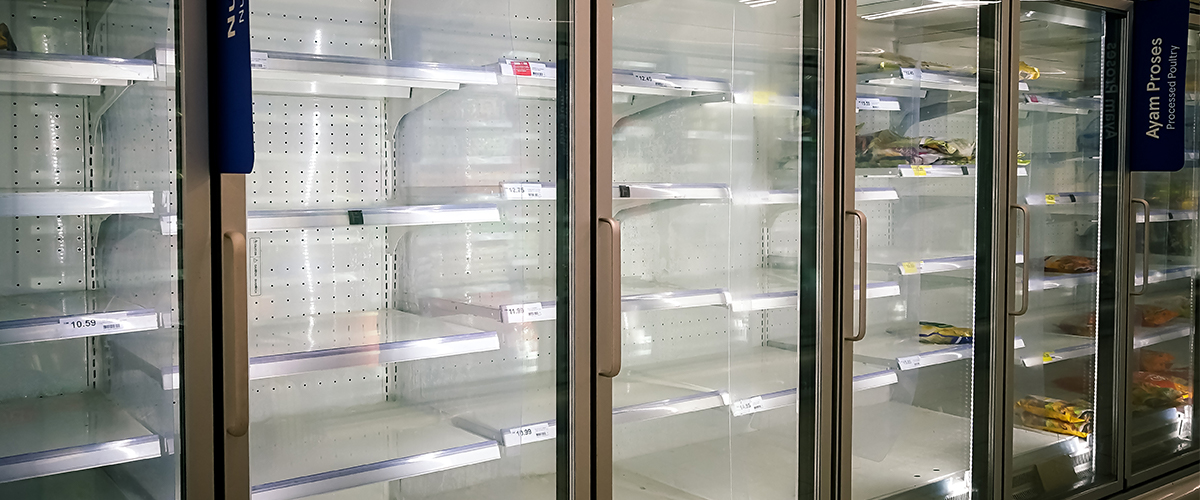Grow Your Income With A Nursery Business
Many people who love gardening often think about turning their love of plants and the outdoors into a thriving nursery business or nursery organization landscape garden center. Backyard nurseries and garden centers are pretty standard in almost every city and town in the USA. And the majority do well because of the popularity of plants and gardens among the general public. Most garden centers do not produce their own plants; instead, they purchase their garden center plants from specialty nurseries.

Build A Nursery Garden Center
Plant nurseries range in size from tiny backyard nurseries to giant wholesale nurseries on hundreds of acres of land. A significant number of successful big nurseries started as small backyard nurseries. However, do not be fooled- the nursery business demands long hours, hard work, and good knowledge about plants and soil. For those who like to work hard, here is an opportunity to make a decent living doing something you enjoy. Further, this business can be seasonal, and customers can be demanding. For those still considering opening a nursery, read on.

Nursery School
Before starting a nursery, it is vital to know plants, plant care, soil, and many other factors that influence plant growth. Without this knowledge, the business is unlikely to take off as plants have very particular requirements, and there is little room for error. Just throwing plant seeds in a pot and providing it with water will not cut it. There are many online nursery courses that you can take to enhance your knowledge. Better still, work for an established nursery first as an apprentice, and you will acquire adequate knowledge about plants and the business.
Here are some online horticulture nursery management courses available:
- ACS Distance Education
- UCLA Extention
- Merrit College
- Colorado State
- Illinois Online
- University Of Mass Amhurst
- Stratford Career Institute
- Mt San Antonio College
- Fullerton College
- Las Positas
- Foothill College
Nursery Business – The Garden Shop
The nursery business on paper does not seem difficult at all; you plant seeds, and within 2-7 weeks, a crop is produced, which you can sell. However, it would help to understand that a complete nursery inventory usually takes several seasons to become financially viable. Thus, before starting a nursery business, you’ll need to find a good location, know the market and have a well-defined production system. Without planning and experience, the company will flounder.
Know Your Plants
No matter what plants you grow in the nursery, you must know them well. Customers will ask questions you didn’t see coming, so it would be best to have a flyer made up with all the information you can gather about your plants. Questions commonly asked will include the amount of light, water requirement, the area required to flourish, sun or shade, or when it will flower. It would be best to label all your plants in the pot and have a tag attached to the plant. Your customer will appreciate it if they want to read about the plant before purchasing.

Nursery Business Incorporation
Check out these few companies that can assist you in getting your LLC started.
Here are a few government links you might want to visit
IRS Website
This site by the IRS is a must-see when beginning your LLC.
Starting My Landscape Garden Center
If you love gardening and think you are ready for a nursery, raise one or two dozen crops, determine if you can look after them, and sell them locally. If you are successful, you can quit your day job and move on to the nursery business.
My Nursery Business – Step-By-Step Approach
There is no one universal method of running a nursery business. Everyone has strategies that work for them. So experiment with what works for you. Try different pots, greenhouses, outside farming, or beds. There is no right or wrong way- if you can make a crop grow and sell it- then do it your way. The more you read about nurseries, the more confused you will get. Plant your seeds, and you can take them from there.
Is Opening A Nursery Company Difficult?
- Hard work
- Patience since crops may take months or years before they can be sold
- Constant marketing
- Keeping track of inventory
- Growing even 1000 plants means labeling each and ensuring the label stays attached in bad weather.
- Competition can be intense
- Bad weather like frost will destroy plants
- Droughts may be severe
- Bugs and insects may damage plants
- Hurricanes, tornadoes, and fires are not uncommon in many parts of the country.
All the above events can be stressful; you’ll have to accept them as part of the nursery business. In the end, you must love plants or not last long in the nursery business.

Nursery Garden Business Plan
If you want to understand the nursery business, it is essential to make a business plan. The plan will help you navigate the common issues in the industry and anticipate future problems. Your plan should contain the following:
- What size is my nursery?
- How many employees will I have?
- Where is my landscape garden center located?
- What are the startup costs to open a nursery?
- Is there a demand for a nursery?
- What tools and equipment will I need to open a nursery?
- How will I ship the plants?
- Who are my customers?
- What size and type of plants will my customers want?
- Is opening a nursery a profitable business?
The plan should summarize your business objectives and how you will attain them.
- Starting In The Nursery Business
- Bplans-Garden Nursery
- Free Plant Nursery Business Plan
- Go Business Plans
- Pro Business Plans
Do I Need A License/Permit To Operate A Nursery?
The simple answer is Yes. Every state has its own rules and regulations. It would help if you went to the Dept of Agriculture and the local Chamber of Commerce to determine what permits and licenses are required. Once you get the permit, you’ll need to renew it yearly. Someone from the Dept of Agriculture will come around every two years to inspect the place for insects, weeds, and invasive plants.

What Are Some Startup Costs For A Nursery?
It all depends on the size of your nursery. The costs can be minuscule if you do this for fun and have a big backyard. You can buy seeds, root divisions, and cuttings in almost any garden store and even plant them in the dirt; some will grow. However, if you want to profit, you’ll need significant space, often the most considerable expense. Other expenses include the following:
- Employee salaries
- Utilities
- Insurance
- Licenses and permit
- Tools and equipment
- Van to ship plants
- Buying supplies

Choose A Garden Store Concept
Once the market research has been completed, it is essential to consider the type of garden center you want to open. You can set up an independent garden center or choose a branded garden center.
Setting up an independent garden center will allow you to retain total autonomy in managing your business. Still, you will have to face competition on your own from large-scale distribution and big-name brands.
The Garden Business – Cutting Costs
One excellent way of cutting down costs is to place a sign asking customers if they have any unused or old pots. Many people have pots lying at home and may want to get rid of them. So if you place a sign at your nursery, you will have people donating all types of plant pots and covers, saving you money.
Stock Your Nursery Supplies
If you want to thrive in the nursery business:
- Learn to stock plants.
- Wherever you go on the road, collect any cuttings and seeds.
- Have a pair of shears with you at all times.
If you go to a neighbor’s or a friend’s home and see a plant you like, save a cutting, seed, and plant it. You can often find oak, hickory, butternut, berries, and cornelian cherries along the roadside; you only need to collect the seeds for your business. By adding to your seed stock, you will never be at a loss for new ideas.
How Do I Start My Own Nursery Business?
Before you plant your seed, you must identify your market. With nursery plants taking 6 -24 months to grow, it is essential to know the market before producing your inventory. Potential customers may be wholesaler growers, garden centers, grocery stores, landscapers, or homeowners.
It would help if you thoroughly surveyed the market and planned accordingly. If there are other nurseries in the area, you must grow unique plants, have competitive prices, and offer better service. Generally, demand for nursery plants tends to be seasonal and linked to commercial and residential properties. Most consumers who visit a nursery look for the following:
Local Nursery Market Study?
The key to nursery business success is growing plants in demand. Thus, visiting a few local nurseries and determining what plants people buy are crucial. For example, potted bamboo plants are in high demand all year round, but flowering plants are only in demand during spring and summer. Ground cover is in demand in spring, especially for people who want a low-maintenance landscape. Over the past two decades, herbs have become very popular and are in demand all year round. Thus, the selection of the plant is vital. Overall most people prefer indoor potted plants. Potted plants are a lot easier to maintain compared to outdoor plants.

Franchise Nursery
Choosing a franchise will allow you to benefit from the brand recognition of the network you decide to join, support, and prices negotiated by the purchasing center, allowing you to be more competitive. However, the franchise also has a cost, financial (entry fee, annual fee), and freedom (less choice in products, need to follow the operational procedures of the brand).
Cross-State Restrictions
If you plan to transport plants across state lines, know the laws, Most states have restrictions on plant transportation to prevent the spread of pests and insects. So before you ship any plant to another state, check out the local laws, or you may be hit with hefty fines.
-
 Honeywell Granit 1981i-FR(Full Range) Wireless Bluetooth Heavy Duty Industrial-Grade Area-Imaging Barcode Scanner Kit (1D, 2D, QR and PDF), Includes Power Supply, RS232 Cable and USB Cable$555.00
Honeywell Granit 1981i-FR(Full Range) Wireless Bluetooth Heavy Duty Industrial-Grade Area-Imaging Barcode Scanner Kit (1D, 2D, QR and PDF), Includes Power Supply, RS232 Cable and USB Cable$555.00 -
 Tera Pro (Extreme Performance) Industrial Wireless Barcode Scanner 2D QR 1D Bar Code Reader 2.4G Wireless 2500mAh Compatible with Bluetooth Drop Resistant for Windows Mac Android iOS Model 8100 Orange$89.89
Tera Pro (Extreme Performance) Industrial Wireless Barcode Scanner 2D QR 1D Bar Code Reader 2.4G Wireless 2500mAh Compatible with Bluetooth Drop Resistant for Windows Mac Android iOS Model 8100 Orange$89.89 -
Sale Product on sale
 Alacrity Upgraded QR 2D Industrial Barcode Scanner, Wireless Charging Cradle, 1968 ft Long Transmission Distance, Bluetooth & 433Mhz Wireless 2in1 Barcode Reader, Dust Shock Proof Hands Free
Alacrity Upgraded QR 2D Industrial Barcode Scanner, Wireless Charging Cradle, 1968 ft Long Transmission Distance, Bluetooth & 433Mhz Wireless 2in1 Barcode Reader, Dust Shock Proof Hands Free$93.99Original price was: $93.99.$74.99Current price is: $74.99. -
 Zebra Enterprise DS3608-HD20003VZWW Series 3600 Corded Ultra-Rugged Scanner, High Density 1D/2D Imager, Vibration Motor, Industrial Green$499.00
Zebra Enterprise DS3608-HD20003VZWW Series 3600 Corded Ultra-Rugged Scanner, High Density 1D/2D Imager, Vibration Motor, Industrial Green$499.00
A Word Of Caution
If you decide to propagate a specialized plant that you like, first make sure it has no patent, or you will face legal hassles. You can apply for a propagator license; unfortunately, most farmers want to protect their patents and may not permit you to grow. However, universities and colleges do release several patented plants each year, and in most cases, you will be able to use them with permission.
What Should I Grow In My Nursery?
You will probably get ten different answers if you speak to ten other nursery owners and ask them what you should grow. There are no right or wrong species to grow in your nursery. The key is to produce something you like to grow. People will travel a long way to buy a specialty if they can develop it. On the other hand, most consumers who walk into the nursery have no idea what they are looking for, so you’ll want to impress them with color and aesthetics.
Here are some supply companies found online
- Hort Tech Systems
- Nursery Supplies Inc
- Nursery Equipment-Farmtek
- Wholesale Greenhouse
- Nursery Products
- Grower’s Nursery Supply

Specializing In The Nursery Business?
By specializing in a few specific plants, you can become well-known in the community. For example, you may grow the best roses in town and know everything about roses. But the problem is, if you specialize too much, just one lousy winter or disease can wipe out your entire crop, and you will have nothing to sell.
By being relatively diverse when planning your crop, you will always have other products to fall back on if the others do not grow well. Diversity means meeting the different soil requirements, light, and water needs; plus, you cannot plant too much in a small space. Keeping track of inventory with hundreds of plants can be a monumental task but well worth the rewards.
Here are some examples
- Baucom’s Nursery Co
- American Plant
- Classic Nursery & Landscape Co
- Nature Hills Nursery
- McKay Nursery
- Plant Delights Nursery
Producing Ground Cover – Nursery Water
Ground cover is a great way to make a decent profit if you want to keep things simple. At $20 per square foot, you can sell thousands of square feet every year. With water shortages and high labor costs in maintaining a landscape, many residents and businesses prefer simple ground cover, which is very easy to maintain. Ground cover is easy to grow and requires little maintenance except for water. Ground cover is popular with both landscapers, building contractors, and homeowners.
- Reasonable prices
- Quality
- Color
- Variety of plants
- Low maintenance plants
- Potted plants
It is vital to consult with a horticulture expert before planting. You’ll want to find answers to the above questions before you place the seed in the ground. Also, your average customer is always impressed by color. Use colorful plants for your print and online ads and keep the best ones for display in the sales office.
Seed And Cuttings
Some of your crops will fail; you must learn how to propagate seedlings and cuttings effectively. Older, tired-looking plants will not bring you much income, but they will save you money and continue to boost your inventory if you can reproduce the cuttings. There are no magic tricks to propagation- you can learn a lot online. Or better still, watch someone do it, and you will get the idea.
Garden Center Location
Suppose you decide to open a nursery in a rural area or a small local community. In this case, it is best to focus on wholesale plants, landscapers, and retail nurseries in the surrounding regions. If you decide to open a retail nursery, you can buy wholesale plants (plugs, liners & whips) and plant starters. These are available at a low price. You replant them, wait for them to grow to a reasonable size, and sell them for a significant profit. Bare roots are often available from wholesale nurseries for 25 cents each, and you can sell them for $5 when they are grown. Another advantage is that you can propagate by cuttings once the plant has matured and lower your buying costs to zero.

Finding A Spot For Your Garden Center
When creating your garden center, choosing the location is an essential step. The location of your garden center will play a critical role in the success of your project. It is advisable to favor an area with a good flow of passers-by and a parking area. You will also need a relatively large lot to display your products. A location in a commercial space may be ideal. You can also decide to take over an already existing garden center, allowing you to benefit from already-acquired clientele.
Nursery Business Location
Here is a list of some popular commercial real estate companies:
Greenhouse Manufacturers
- Grow Span
- Atlas Greenhouse
- T3 Greenhouses
- GGS Structures
- Gothic Arch Greenhouses
- Agri Expo
- Agra Tech
- Stuppy
- Nexus
This is a list of hydroponic equipment suppliers
- Floraflex
- DL Wholesale
- Hydrotek
- Hydro Builder
- Wholesale Growers Direct
- Global Garden
- Danner
- Agrify
- TCP
- Grow Pod Solutions

Prepare Ahead Of Time
Even though you operate a nursery, you’ll still need a sales office to meet your customers, keep your books, etc. You’ll need to keep that in mind when scouting out your location. Making the place inviting, providing a seating area, and perhaps offering a hot beverage may help, especially in colder weather. Also, keep a list of your plants and their prices and make banners displaying that pricing in the office space, significantly if you are growing hundreds of them.
Garden Center Marketing
To attract your first customers and succeed in retaining them, it is essential to think about the marketing plan for your garden center.
Several options are available to you here:
- Setting up a loyalty program with a card system collecting points for each purchase can build customer loyalty in this ultra-competitive world.
- Direct marketing operations such as distributing leaflets in mailboxes in neighboring homes can also help you make yourself known.
- Setting up a website with practical information (opening hours, directions to find you) and possibly a merchant section can also help you gain visibility.
- Nursery Marketing
- Nursery Web Design & Marketing
- Marketing Nurseries
- A Guide To Marketing for Nursery
- Best Digital Marketing
What Tools And Equipment Do I Need For A Nursery?
- Hand Trowel
- Secateurs
- Hoe
- Gardening Gloves
- Spade
- Fork
- Shovel
- Rake
- Saw
- Wheelbarrow
- Scissors
- Shears
- Kneeling pads
- Fertilizer
- Plant feed
- Dibber
- Limb lopper
- Edgers
- Spray bottle
- Watering can
- Sickle
- Containers
- Pots
- Footwear
- Weed and moss killer
- Bed diggers
- U-blades
- Tree spades
- Transplanters
- Potting machines
- Sprinkler system
- Garden hose
- Leaf rake
- Leaf blower
- Brushcutter

Keep On Gardening
There will be times when seeds and cuttings do not grow. But do not fret over it-.do not let the soil go to waste; plant something else, and the sooner you learn how to utilize your space and soil, the more likely it is that your business will succeed.
Know What The Customer Wants
It is vital for the nursery business to know what the customer wants and adjust the nursery accordingly. Besides plants, people will buy seeds, cuttings, big plants, small plants, trees, and shrubs. The demand for plants is enormous, and you should grow the ones that will be most popular. The key to the business is competitive prices, as most people prefer cheap plants. Also, go small rather than supersize; most residential customers choose small potted plants.
Conclusion
The nursery business can be lucrative but requires hard work and experience. You must be willing to commit for several years before you start feeling comfortable. Success in a nursery business comes more easily to those who have done a market analysis and have developed a well-planned production schedule.










